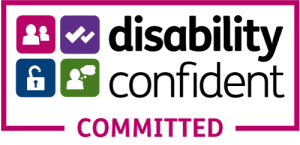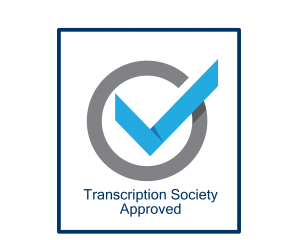Transcription is the process of converting audio or video recordings to written documents, and is a service used by a wide selection of different industries and sectors. One of the key areas where transcription is used on a very regular basis is in the medical & health sector.
Different Types of Medical Transcription
Medical transcription breaks down into lots of different categories, but one of the key areas is the dictation by health professionals of patient notes and letters once they have had an appointment and examination of that particular patient. This is invariably dictation and can be done with or without notes and or with or without access to medical records by the transcriber.
Health Professional Transcription
Health professionals have been using transcribers for over a hundred years, and it is one of the earliest forms of transcription. Traditionally a hospital doctor or surgery doctor would have a secretary skilled in shorthand who was able to take down instructions immediately and produce handwritten notes & letters. Some doctors were still using secretaries for notation of documents and letters right up until the 1990s, but this is incredibly rare to see these days and much more likely that a handheld dictation device is used by the doctors themselves, with outsourced or in house transcription services.
Data Security
One of the key restrictions on health professionals is data security and confidentiality for obvious reasons. TP Transcription and University Transcriptions (our academic transcription service) spend significant amounts of time each week agreeing data processing agreements with medical & academic clients for specific projects, and the ability to handle personal data safely has become a main focus of most transcription service users. There are very valid and serious concerns about the safety of data, which means that extensive safeguards have been put in place in recent years. For example, the strict requirement that no data leaves the UK at any time and the need for data handling companies to be ICO registered, Cyber Essentials Plus audited and running an ISO 27001 management system. NHS funded researchers and medics are particularly careful around personal data protection.
These strict requirements have also meant that recent advancements in high quality recording capacity built into mobile phones has passed the majority of the medical profession by, particularly if they work in larger organisations or the public sector, such as the NHS in the UK.
As far as we are aware most, if not all, NHS staff are not allowed to use their smartphones as recording devices for creating or manipulating patient data. The RCN and GMC both publish guidelines on this.
This means that our experience of the majority of health professionals, whether doctors, nurses, physiotherapists, psychotherapists etc. is that they have to use handheld dictation devices, often connected to certain types of software for any transcription they undertake. These devices are obviously work-restricted, so that there can be no personal use, for example.
Olympus DSS – Market Leaders
We regularly work with medical professionals who use Olympus DSS systems or similar which are essentially handheld devices that plug in to laptops or PCs, or connect via Bluetooth. The recordings are then sent by Egress encrypted email (for example) or via internal/external secure systems for transcription.
Outsourced Medical Transcription
Quite a lot of medical transcription work is outsourced, mainly because of the obvious cost savings. Some hospitals or medical companies have their own transcription teams, where everything is handled in house by teams of dedicated transcribers.
AI Medical Transcription – Not Yet Fully Accurate
Whilst some AI systems have been trained by humans to recognised considerable amounts of medical terminology and drug types there is still a problem with the accuracy of AI when it comes to medical transcription.
Human Medical Transcription Most Accurate
This means that often human transcription is still by far the best way of getting medical transcription work completed with almost 100% accuracy rather than the 50-60% that is often the case with AI transcription. This statistic excludes medical terminology or drug types that AI will find it impossible to interpret. The other problem with AI is that most of it is located in unidentifiable locations, which means that using it requires personal data to be sent around the world, very often in breach of information security policies.
Templates
Very often medical transcription requires the client to provide the transcription company with templates used for the creation of patient records or layouts for letters, as every professional or organisation has their own individual techniques and methods of completing them.
There are lots of other types of medical transcription that don’t relate to producing patient records or letters, and are more linked to research or projects being undertaken by an organisation.
Medical Research – Key Area
One of the key areas our company (TP Transcription and University Transcriptions) works in is medical research and we’re often called upon to work on long term projects by public health organisations around the UK and overseas as well as universities and academics linked in with health organisations undertaking specific academic projects connected to particular health issues. For example we have in recent years worked on a longitudinal study around the treatment of strokes, a project that has been ongoing for over 20 years.
These types of study tend to require professional human transcriptionists (transcribers) to be able to accurately produce a record of dialects, accents and the spoken word but also an ability to recognise the medical terminology that goes with a particular project.
Some of our transcribers who work on these projects will have handled similar files for years and are fully skilled at recognising medical terminology and producing an accurate version of it. This is often extremely important when it comes to medical transcription because the terminology can take up quite a considerable amount of the recording and a trained human transcriber, often a graduate or former health professional themselves, can make a huge difference to the accuracy and quality of any transcription as opposed to the untrained ear producing such a record.
You Get What you Pay For – Quality v Quantity
It is the same with most services, and particularly relevant for medical transcription but you get what you pay for when it comes to using professional services for this type of work. If you want someone who has the ability to produce an accurate record of a recording then you have to get someone in who has the experience and expertise to do this. Medical transcription can be highly complicated and often requires a good level of ability by whoever is completing it.
Medical Transcription Requirements
If you would like to discuss any ongoing medical transcription needs, any projects or you are an academic about to undertake a project in this sector please do not hesitate to get in touch with us using our contact page. www.tptranscription.co.uk is our website and we have been working with health professionals for over 20 years, providing thousands of hours of transcriptions of a whole host of differing types of audio and video recordings.









